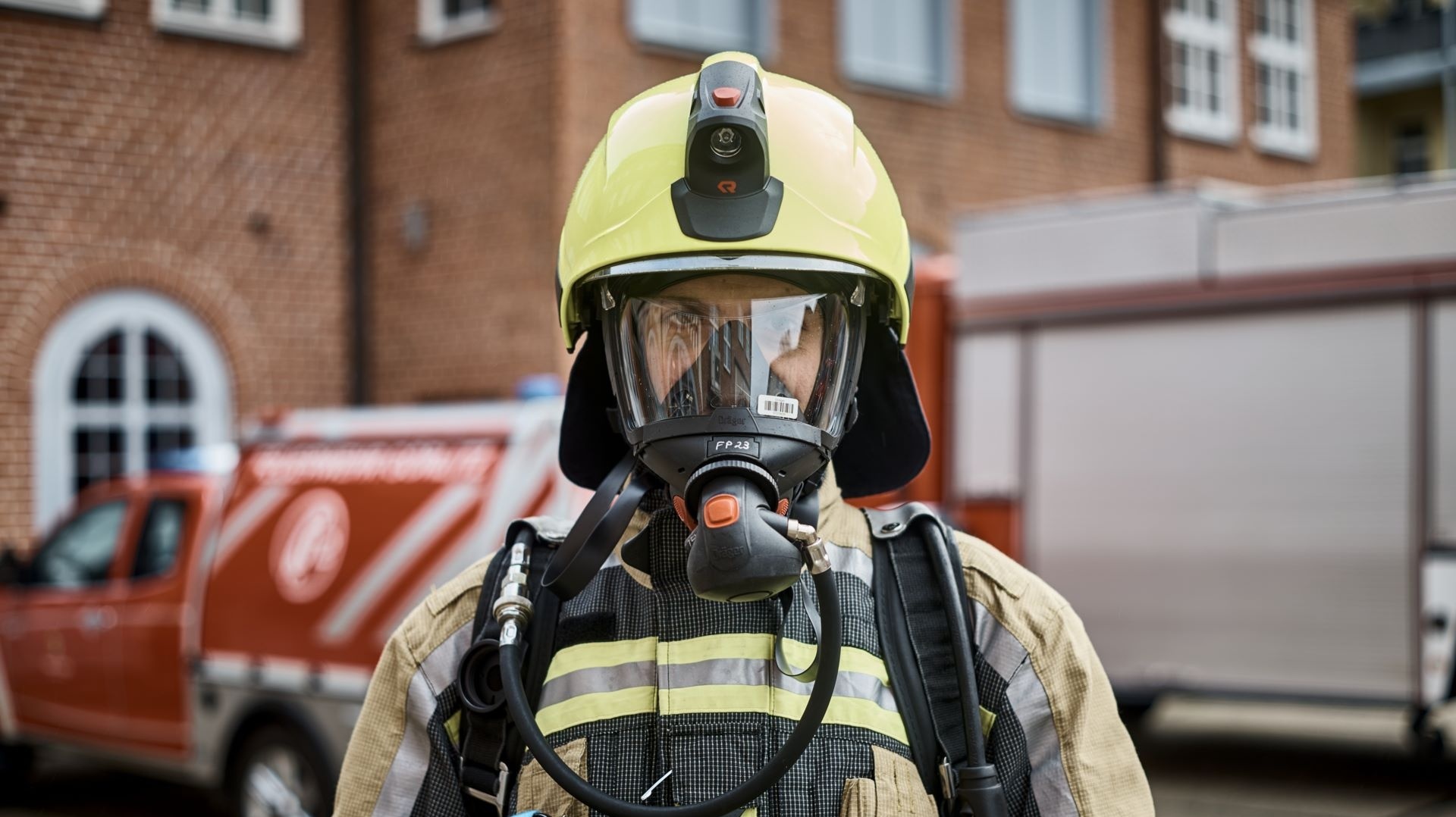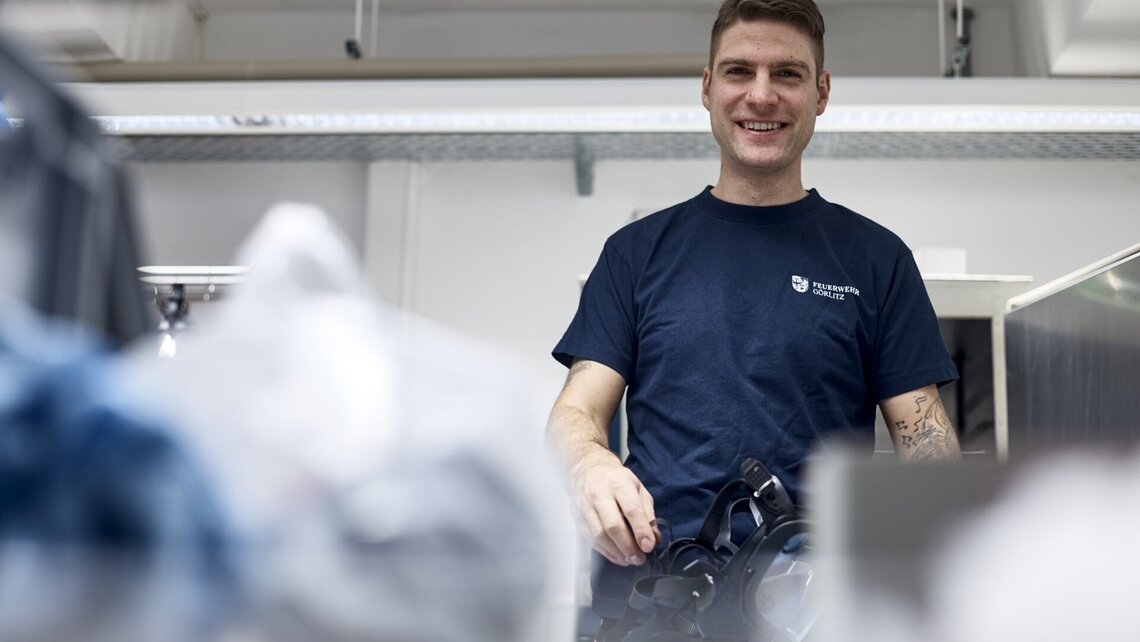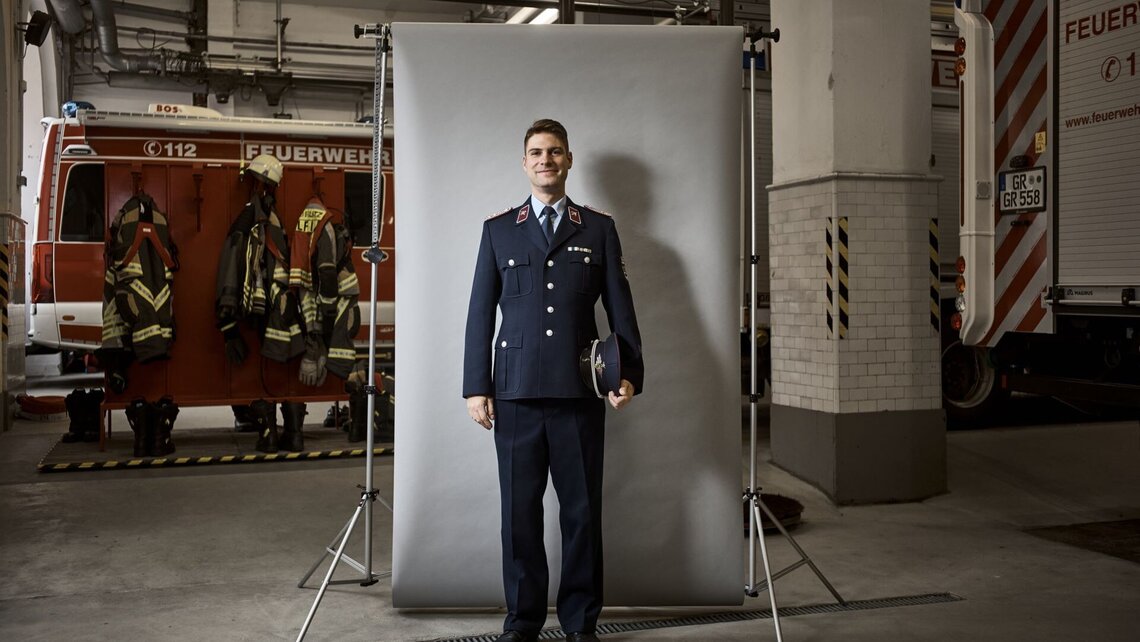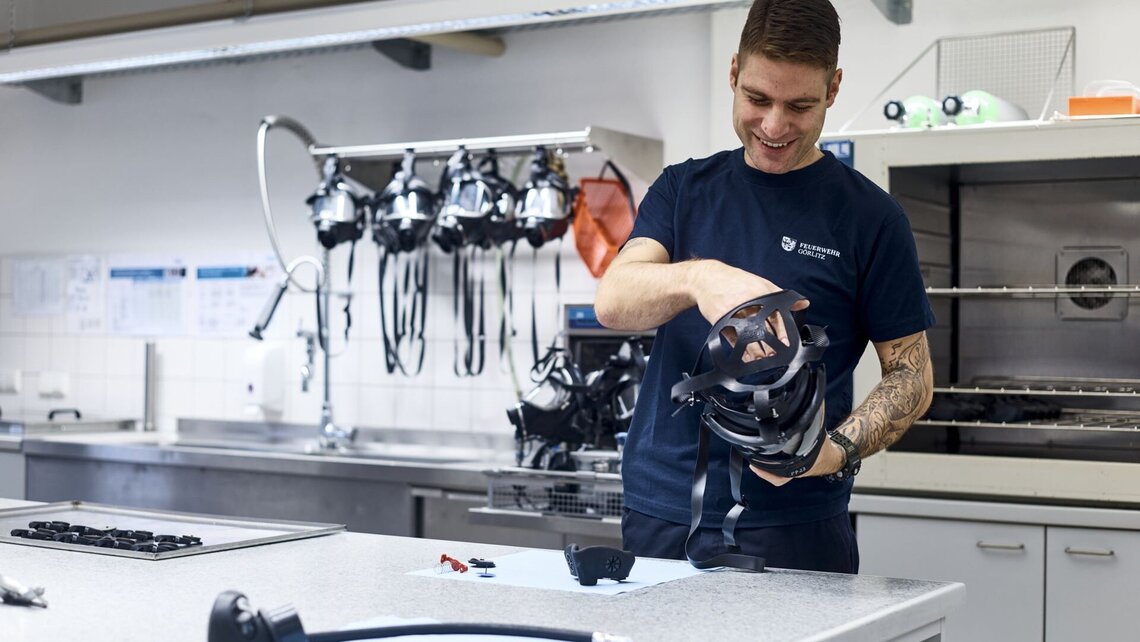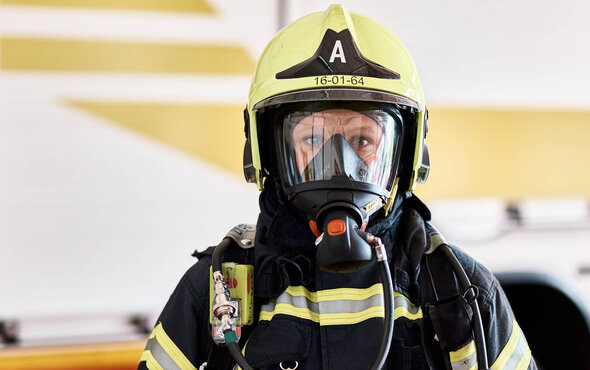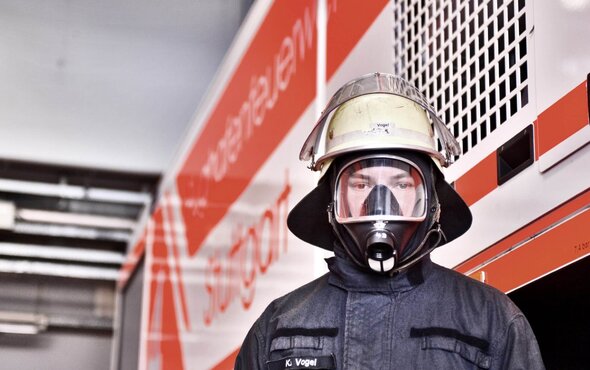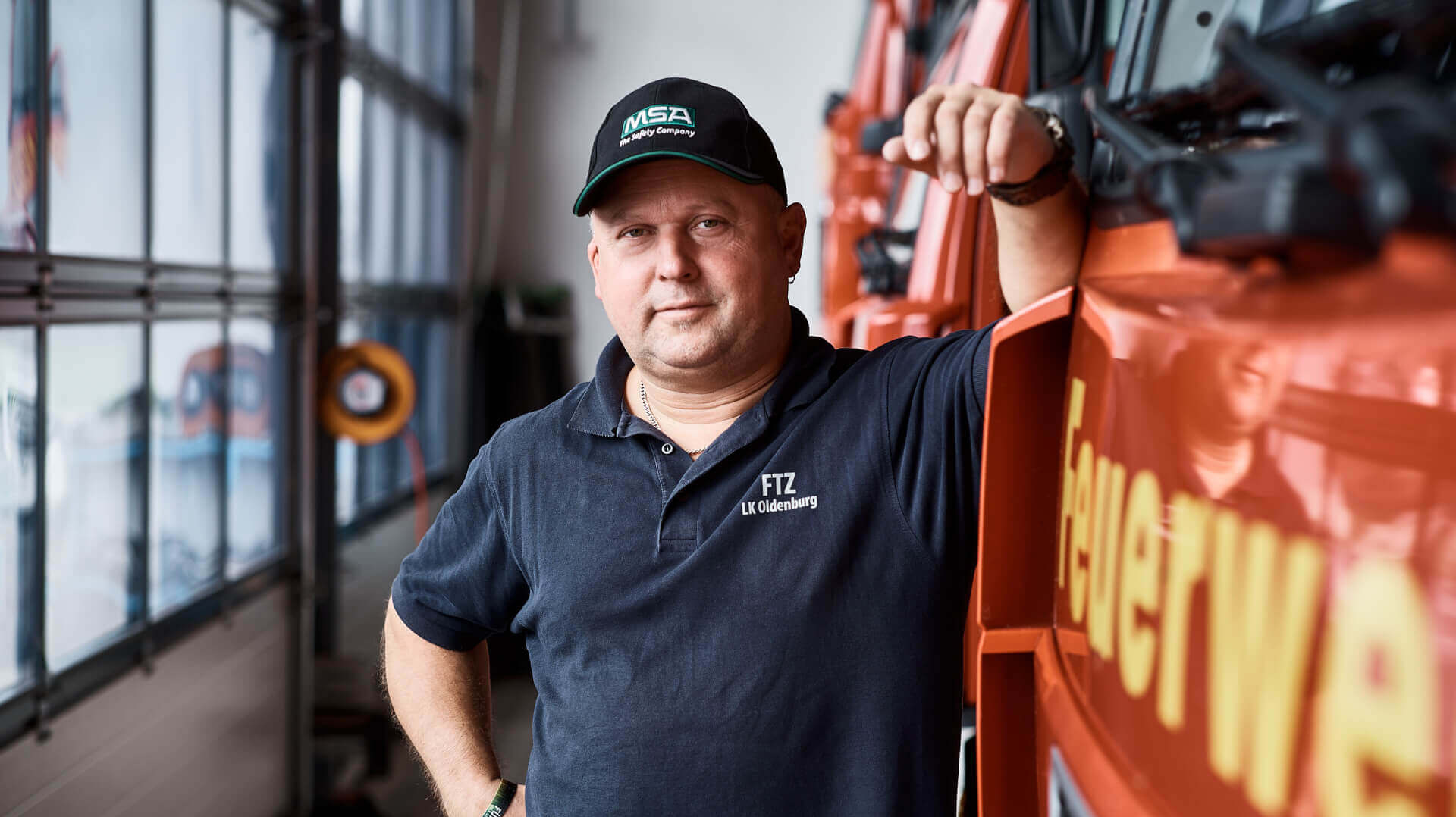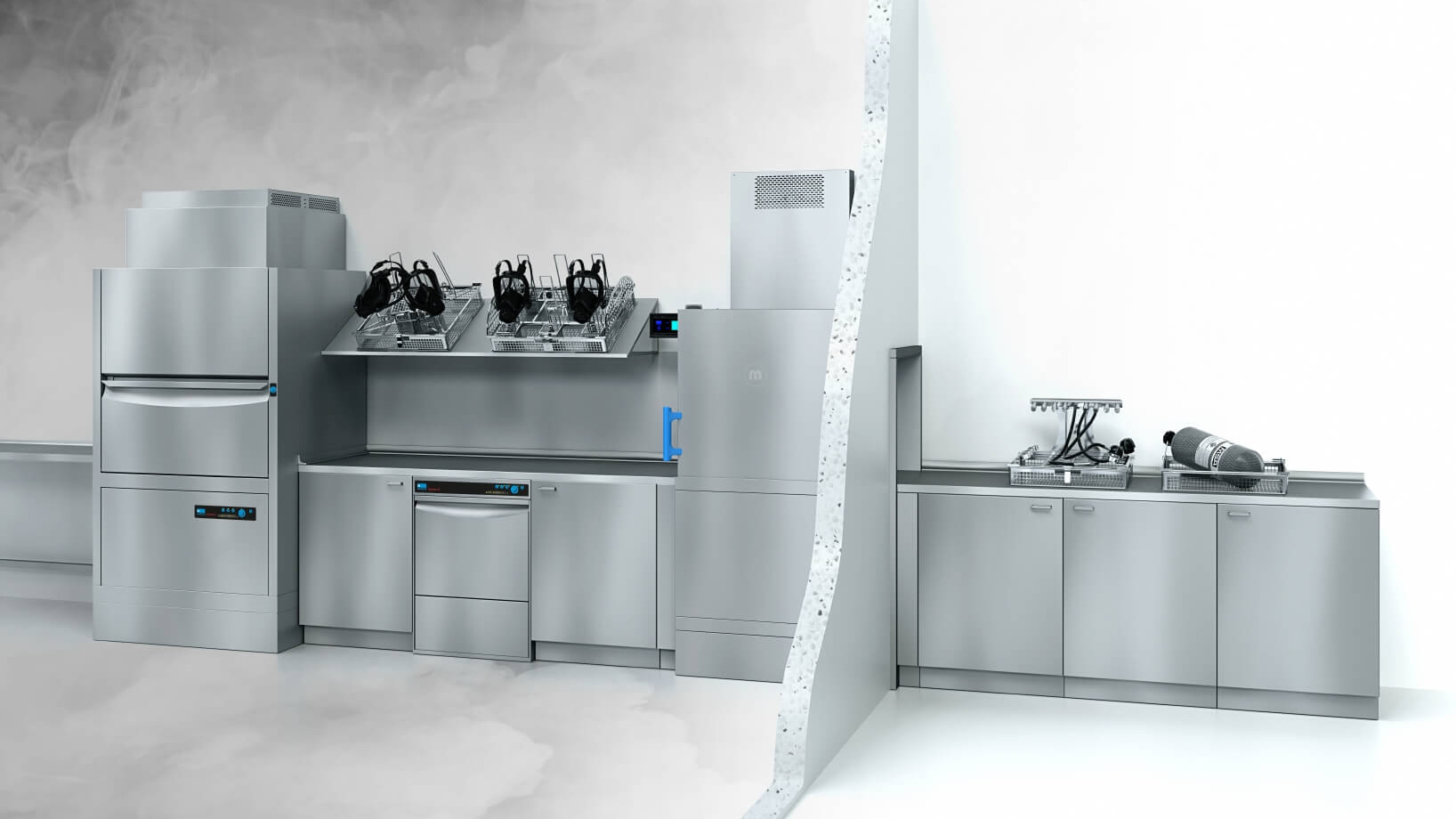As a rescue worker with the Görlitz professional fire service, I put out fires and save lives. We respond to traffic accidents, house fires and wildfires. We’re also responsible for various fire alarm systems and provide support in carrying injured people and opening doors in emergencies. I can be deployed in every vehicle, in the fire engine, on the aerial ladder or on the ambulance.
I also repair the equipment in the electrical and radio workshop. I became an SCBA technician in March 2023 and have worked in the SCBA workshop ever since, where I perform maintenance on self contained breathing apparatuses and BA masks. From 7 a.m. to 5:30 p.m., my roster also includes training and exercise. It’s quite the varied workday!
The Görlitz professional fire service has about 60 employees. As a smaller professional fire service, we average three call-outs within 24 hours. By contrast, our ambulance turns out for calls six to seven times a day. After 24 hours on call, we’re off for 48 hours.
He laughs. Yes, I’m a member of the voluntary fire service in Spitzkunnersdorf, where I live. Every two weeks, I participate in the training service and on weekends I join drills. Being webmaster isn’t my passion, but there’s no one else to do it.
The constant need to learn more. The fire service is a very technical work environment. It feels like you have to attend a new course every year because the technology has become more sophisticated.
For me, the tasks as an SCBA technician in the SCBA workshop just recently became part of my ‘normal’ job. I learn something new every day here. We maintain lots of different mask models for the surrounding communities. I’m supported by software, which takes care of checks. But I do have to take them apart, clean them and put them back together in the right order myself.
The fire brigade technical centre only introduced two separate clean and dirty areas in 2022. Ever since, used equipment is accepted in a space separated physically from the workshop where it is maintained.
Our neighbouring town in Poland also has a professional and a voluntary fire service. We used to do projects together, but today there are very few points of contact, for example if fuels like oil leak or a canoe capsizes on the Neisse.
Our remit has grown. On the one hand, people are less and less capable of helping themselves and so they call the fire department faster than they would have a few years back. It’s convenient and doesn’t cost anything. You see this in cities especially – even small fires you could put out with a bucket of water from the balcony are called in.
And we are more often seeing social stories: older people overwhelmed by their situation without any relatives looking after them. On the other hand, there has been an increase in extreme weather incidents, such as wildfires and torrential rain. In our region, it’s mainly flooding.
Cross-contamination has been on my mind since joining the fire service. We always pack protective clothing in bags and the used hoses from fires are placed on a trailer. The media is more and more frequently talking about the cancer risk from fire. And that’s a good thing. I think a lot of it is influenced by management. If they lead by example in separating clean and dirty areas, nobody questions it.
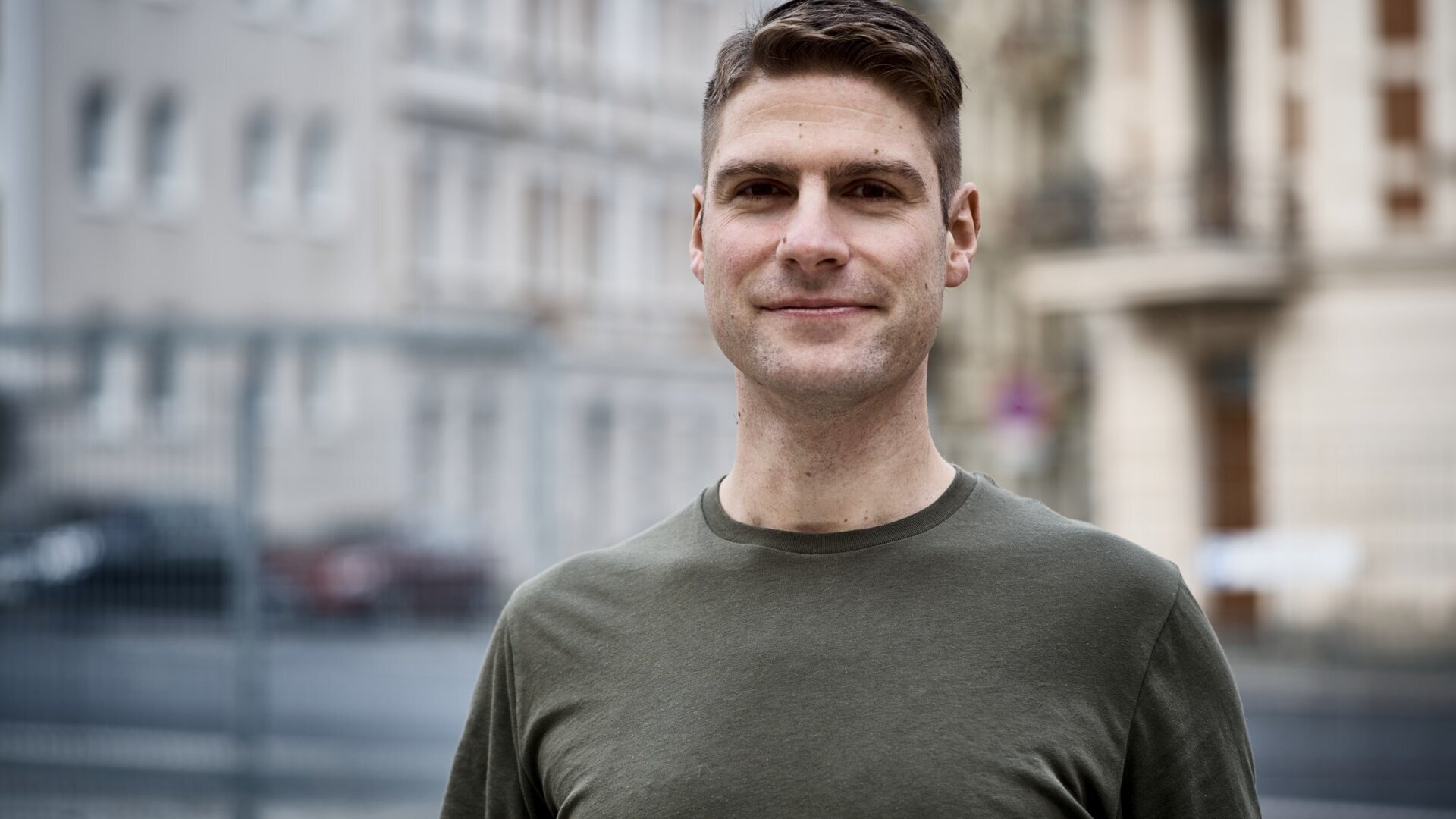
Cross-contamination has been on my mind since joining the fire service. I think a lot of it is influenced by management. If they lead by example in separating clean and dirty areas, nobody questions it.
You’re a trained electronics engineer and also have a degree in electrical design? Why did you decide to change careers and join the fire service full-time four years ago?
The fire service has been my hobby ever since I was ten. Back then, we learned lots about all the technology and the different scenarios: How do I block off a street? How do I prepare to extinguish a fire? At 16, I switched to the active department, took classes and then, at 18, I was finally able to ride along on call-ins. My older brother was also a member of the fire service. That’s how I got the idea to begin with.
What could you do without at work?
Nothing comes to mind. But I do find it vexing that no where in our country seems to have the money for non-police emergency services. I find that not enough is invested in the safety of our citizens.
What might interest you besides the fire department?
Hard to say. I wouldn’t want to go back to my old job. I love what I do. Anything else would be a compromise I’m not willing to take.
You’re an outdoors person and enjoy hiking. Where and how often do you pursue your hobby?
In the local Zittau Mountains here in Saxony. It’s the smallest mountain range in Germany and offers beautiful destinations in every season. As often as I can.
Who has been the biggest influence on your life? How?
He laughs. Hm, my brother. I’ve known him the longest. He’s six years older and we’ve always gotten along. We stuck together. If one of us needed help from the other, he got it. We grew up in a small town and shared lots of friends.
If you had to work an hour less a day, what would you do with your newfound free time?
I would spend it with my family. With my 16-year-old daughter, my girlfriend and our second child.
What does responsibility mean to you?
Being there for my family, but for my colleagues too.
Passion makes for success
Daniel’s heart beats for the professional fire service and the voluntary fire service. So does ours. That’s why MEIKO solutions for cleaning and disinfecting respiratory protective equipment are used in many different brigades, and even in industrial applications. You’ll find numerous success stories here.
